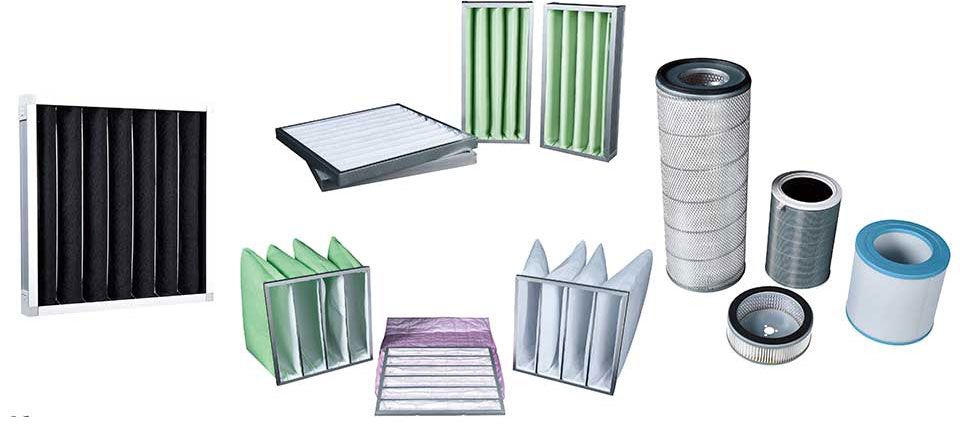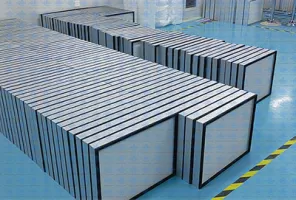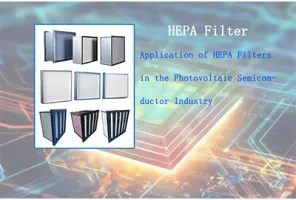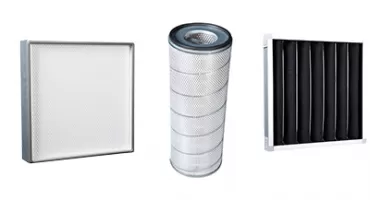 November 20, 2024
November 20, 2024
Air filters play a crucial role in maintaining the efficiency of your HVAC system and improving indoor air quality. Whether you're a homeowner or a business operator, understanding air filters and their importance can help you make better decisions for your HVAC system. Let’s dive into everything you need to know about air filters, including how they work, when to replace them, and why proper maintenance is essential.

An air filter is a component of your HVAC system designed to trap dust, pollen, mold, and other airborne particles. Made from pleated paper, fiberglass, or cloth, the filter is placed between the air intake and the system's blower. As air passes through, the filter captures particles, ensuring only clean air circulates through your home or workspace.
MERV stands for Minimum Efficiency Reporting Value, a standard rating system that measures an air filter's ability to capture particles. The higher the MERV rating, the more effective the filter is at trapping smaller particles. Here's a breakdown:
- MERV 1-4: Basic protection, suitable for residential use.
- MERV 5-8: Medium efficiency, ideal for commercial settings or homes with pets.
- MERV 9-12: High efficiency, recommended for allergy sufferers.
- MERV 13-16: Superior filtration, often used in hospitals and cleanrooms.
Choose a filter with the appropriate MERV rating based on your needs and HVAC system compatibility.
The lifespan of an air filter depends on various factors, including usage, the type of filter, and indoor air quality. Typically:
- Basic filters: Replace every 30 days.
- Pleated filters: Last up to 90 days.
- High-efficiency filters: Can last 6-12 months.
However, several circumstances may require more frequent replacement.
Here are a few reasons to replace your air filters more frequently:
1. Pets: Pet dander and fur can clog filters faster.
2. Allergies: A clean filter helps reduce allergens in the air.
3. High usage: During summer or winter, HVAC systems run more frequently.
4. Poor air quality: Living in areas with heavy pollution or near construction sites requires frequent filter changes.
Regularly inspect your air filter by:
- Visual inspection: If the filter looks gray, dusty, or clogged, it’s time to replace it.
- Restricted airflow: Reduced airflow from vents indicates the filter may be blocked.
- Increased energy bills: A dirty filter forces your HVAC system to work harder, using more energy.
A dirty filter can lead to:
- Reduced HVAC efficiency.
- Higher energy bills.
- Increased allergens and pollutants in the air.
- Potential damage to your HVAC system.
Changing your air filter has numerous advantages:
- Improved air quality: Clean filters remove dust, allergens, and other contaminants.
- Better HVAC efficiency: A clean filter ensures optimal airflow.
- Longer system lifespan: Regular maintenance reduces wear and tear on your HVAC unit.
- Lower energy costs: Proper airflow reduces energy consumption.
Replace your air filter:
- At least once every 3 months.
- Monthly if you have pets or allergies.
- Before peak HVAC usage seasons (summer and winter).
Failing to replace air filters can cause:
1. Clogged airflow: Reduced efficiency and increased strain on your system.
2. System damage: Over time, dirt buildup can damage internal components.
3. Health issues: Poor indoor air quality may aggravate allergies and respiratory conditions.
Some air filters are reusable and can be cleaned, but most disposable filters should be replaced. If you have a reusable filter:
- Remove the filter.
- Rinse it with water and let it dry completely before reinstalling.
Follow these steps to replace your air filter:
1. Turn off your HVAC system: Ensure safety by powering off the unit.
2. Locate the filter: It’s typically found near the return air duct or blower.
3. Remove the old filter: Slide it out carefully to avoid spreading dust.
4. Install the new filter: Ensure it matches the correct size and airflow direction.
5. Power the system back on: Enjoy better airflow and cleaner air!
The best filter depends on your needs:
- For general use: Pleated filters with MERV 8-12.
- For allergy sufferers: HEPA filters or MERV 13+.
- For homes with pets: High-efficiency filters designed for pet dander.
Always ensure the filter is compatible with your HVAC system to avoid operational issues.
Maintaining clean air filters is a simple but crucial step in ensuring the longevity and efficiency of your HVAC system. Regular replacements improve air quality, lower energy costs, and prevent costly repairs. Make filter maintenance a priority to enjoy a healthier and more comfortable living environment!
For more tips on HVAC care and choosing the right air filter, contact us or visit our blog regularly.
 Apr. 29, 2024
What are the key points in selecting a HEPA filter?
Apr. 29, 2024
What are the key points in selecting a HEPA filter?
 Jun. 04, 2024
Application of HEPA Filters in the Photovoltaic Semiconductor Industry
Jun. 04, 2024
Application of HEPA Filters in the Photovoltaic Semiconductor Industry
 Jan. 15, 2024
Air Filters Used in the Electronics Manufacturing Industry
Jan. 15, 2024
Air Filters Used in the Electronics Manufacturing Industry
Choose Yitong Filter to help maintain production operations and ensure the safety of workers.